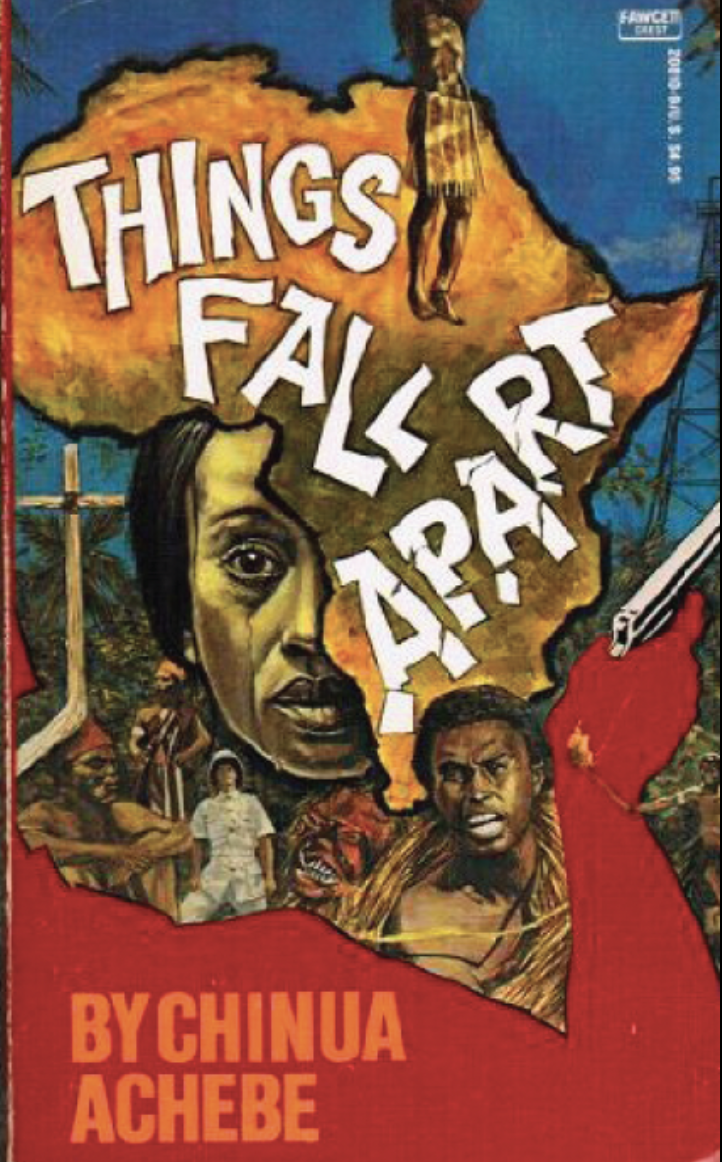
Things Fall Apart by Chinua Achebe
Theodoros Kafantaris
Published on November 21, 2025
1. Introduction
Few novels have reshaped global conversations about culture, identity, and colonialism as powerfully as Chinua Achebe’s Things Fall Apart. First published in 1958, this landmark work opens a window into pre-colonial Igbo society with a richness and authenticity that had rarely been seen in English literature. Achebe didn't just write a novel—he challenged the Western gaze, rebalanced the narrative, and gave African literature a place on the world stage.
This is a book that endures not because it’s assigned in classrooms (though it often is), but because it illuminates universal human tensions: ambition and fear, tradition and change, pride and downfall. If you like stories that expand your worldview and make you quietly whisper “ouch” at your own humanity, you're in the right place.
2. About the Author
Chinua Achebe (1930–2013) is widely regarded as the father of modern African literature. Born in Nigeria, Achebe grew up navigating two worlds—traditional Igbo culture and British colonial influence. This dual identity shaped his writing, infusing it with nuance, tension, and deep cultural insight.
His major works include No Longer at Ease, Arrow of God, A Man of the People, and Anthills of the Savannah. Achebe’s style is known for its clarity, understated humor, and ability to convey oral storytelling traditions within written form.
A fun (and important) fact: Achebe wrote Things Fall Apart partly in response to colonial-era novels like Heart of Darkness, which depicted Africa as mysterious, inferior, or downright monstrous. Achebe didn’t argue—he simply told the story correctly.
3. Story Overview
I. Okonkwo: A Man Made of Fire (and Fear)
At the heart of the novel is Okonkwo, a respected warrior and leader in the Igbo village of Umuofia. He’s strong, driven, and allergic to anything he perceives as weakness—a reaction to his father, who was gentle, artistic, and deeply in debt. Okonkwo is determined to be the opposite: disciplined, feared, and successful. Unfortunately, this means he’s also controlling, rigid, and sometimes terrifying even to the people he loves.
II. Life in Umuofia: Rhythm, Ritual, and Rough Edges
Achebe paints everyday Igbo life with beautiful detail—festivals, farming cycles, marriage customs, communal decision-making, and spiritual traditions. The society is complex and structured, neither idyllic nor savage, but fully human.
During this period, Okonkwo’s household expands, he takes titles, and he raises children with the same iron will he applies to everything. When he becomes guardian to a boy named Ikemefuna—sent as peace restitution from a neighboring village—Okonkwo’s rigid worldview collides with genuine affection, leading to one of the novel’s most poignant turns.
III. Tragedy Strikes: Exile and Upheaval
A grave accident forces Okonkwo into a seven-year exile in his mother’s homeland. Here, he reflects bitterly on lost status and masculinity. Meanwhile, Umuofia begins changing in ways he can’t witness or control. The arrival of Christian missionaries introduces new beliefs, new opportunities, and new divisions. Some villagers resist; others convert, drawn by promises of education or hope.
Achebe doesn’t caricature either side—he presents a slow cultural shift that is both understandable and heartbreaking.
IV. When Things Fall Apart (Yes, Literally)
Upon returning home, Okonkwo finds Umuofia transformed. Colonial administrators now enforce foreign laws and punishment systems. The village feels shaken, uncertain, and fractured.
Okonkwo responds with the only tools he knows: defiance, anger, and the belief that strength alone can restore what’s been lost. But the world has already changed, and his inability to change with it leads to the novel’s tragic, unforgettable conclusion.
4. Key Takeaways
-
Identity can be both heritage and choice.
Achebe shows how culture shapes the self—and how individuals struggle when those foundations shift. -
Rigidity is often another form of fear.
Okonkwo’s need for control stems from deep insecurity, offering a cautionary tale about unchecked pride. -
Stories shape power.
Achebe’s novel reminds us that who tells a story—and how they tell it—can define entire cultures. -
Colonialism’s impact is complex and deeply human.
The book avoids oversimplification, instead showing how communities fracture from within as external forces rise. -
Tradition and change aren’t enemies—but they need dialogue.
The novel illustrates the cost when communication collapses between generations, beliefs, or ways of life.
5. Why Things Fall Apart Is a Must Read
Things Fall Apart is essential reading because it gives voice to a perspective long misrepresented in global literature. Achebe masterfully combines storytelling, cultural history, and political critique without ever losing emotional depth. This is a novel that changes readers—expanding empathy, challenging assumptions, and revealing how universal the struggle for meaning, belonging, and dignity really is.
For anyone building a “100 Books You Must Read” list, this one practically writes itself onto the page.

